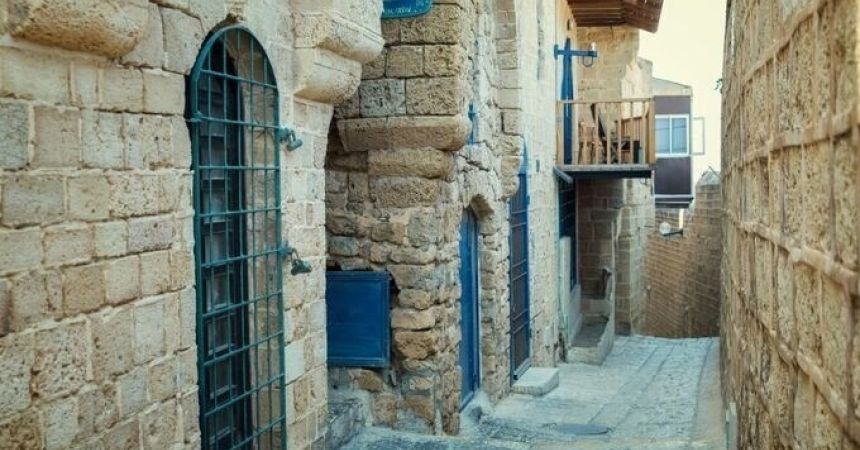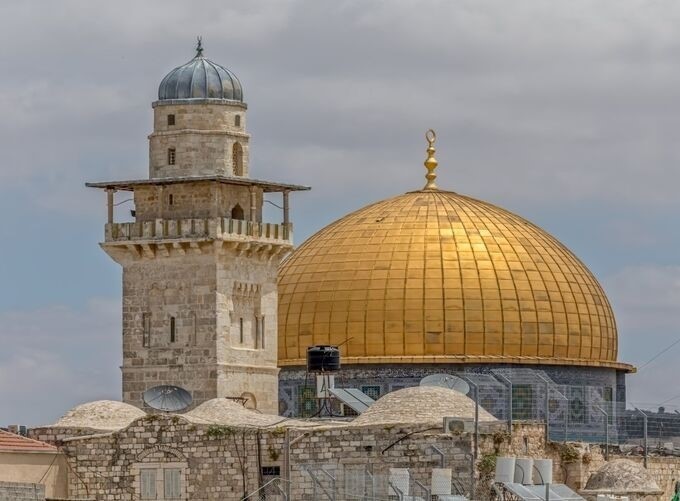
How to Plan a Perfect Israel Vacation
Planning a trip to Israel, a land rich in history, culture, and natural beauty, can be both exciting and overwhelming. From ancient religious sites and bustling cities to stunning beaches and desert landscapes, Israel offers a diverse range of experiences for every traveler. This comprehensive guide will help you plan the perfect trip to Israel, covering everything from the best time to visiting top destinations of Israel to practical travel tips and cultural insights.
Deciding When to Visit Israel: Best Times & Tip
Seasonal Overview
Israel's climate varies significantly across its regions, making it a year-round destination. However, the best time to visit depends on your preferences and the activities you plan to enjoy.
Spring (March to May)
- Weather: Mild temperatures and blooming landscapes.
- Highlights: Ideal for outdoor activities, nature hikes, and exploring historical sites.
- Festivals: Passover, Easter, Independence Day.
Summer (June to August)
- Weather: Hot and dry, especially in inland and desert regions.
- Highlights: Perfect for beach vacations and water sports.
- Festivals: Tel Aviv Pride, Jerusalem Film Festival.
Autumn (September to November)
- Weather: Comfortable temperatures and fewer crowds.
- Highlights: Great for cultural events, wine tasting, and exploring cities.
- Festivals: Rosh Hashanah, Yom Kippur, Sukkot.
Winter (December to February)
- Weather: Mild but can be rainy in the north and central regions; cooler in Jerusalem.
- Highlights: Ideal for exploring desert areas, religious sites, and enjoying winter festivals.
- Festivals: Hanukkah, Christmas, New Year’s Eve.
Preparing for Your Trip
Travel Documents and Visa Requirements
- Passport: Ensure your passport is valid for at least six months beyond your planned departure date.
- Visa: Check if you need a visa to enter Israel. Many nationalities can enter visa-free for up to 90 days. For specific information, consult the Israeli Ministry of Foreign Affairs website.
Health and Safety
- Vaccinations: No specific vaccinations are required for entry, but it's advisable to be up-to-date on routine vaccines.
- Health Precautions: Tap water is safe to drink, and healthcare facilities are of high quality. Bring any necessary medications and a basic first-aid kit.
- Safety: Israel is generally safe for tourists, but stay informed about local news and travel advisories. Avoid border areas with Syria and Lebanon.
Budgeting and Currency
- Currency: The official currency is the Israeli Shekel (ILS). Credit cards are widely accepted, but it’s good to carry some cash for small purchases.
- ATMs and Exchange: ATMs are readily available, and currency exchange services are offered at airports, banks, and exchange bureaus.
- Budgeting: Israel can be expensive, especially in cities like Tel Aviv and Jerusalem. Budget for accommodation, food, transportation, and entrance fees to attractions.
Packing Essentials
- Clothing: Pack light, breathable clothing for summer and layers for winter. Modest clothing is recommended when visiting religious sites.
- Footwear: Comfortable walking shoes for exploring cities and hiking boots for outdoor activities.
- Sun Protection: Sunglasses, a hat, sunscreen, and a reusable water bottle.
- Electronics: Adapters and converters for Israeli power outlets (Type H, 230V).
Israel Itinerary Planning Tips
Top Destinations
Jerusalem
Jerusalem, a city of profound historical and religious significance, is a must-visit for any traveler to Israel.
- Old City: Explore the Western Wall, Church of the Holy Sepulchre, and Temple Mount.
- Yad Vashem: Israel’s Holocaust memorial and museum.
- Israel Museum: Home to the Dead Sea Scrolls and extensive archaeological collections.
Tel Aviv
Tel Aviv, Israel’s modern and vibrant city, offers beautiful beaches, lively nightlife, and a rich cultural scene.
- Beaches: Relax at Gordon Beach and Frishman Beach.
- Rothschild Boulevard: Stroll along this iconic street known for its Bauhaus architecture.
- Jaffa: Visit the ancient port city and explore its historic streets and flea market.
The Dead Sea
The Dead Sea, the lowest point on Earth, is famous for its mineral-rich waters and therapeutic mud.
- Floating: Experience the unique sensation of floating in the salty waters.
- Masada: Visit the ancient fortress with stunning views of the Dead Sea.
Haifa
Haifa, a beautiful coastal city, is known for its stunning gardens and diverse culture.
- Bahá'í Gardens: Visit the terraced gardens and the Shrine of the Báb.
- German Colony: Explore this historic neighborhood with cafes and restaurants.
Eilat
Eilat, a resort city on the Red Sea, is ideal for water sports and desert adventures.
- Coral Beach Nature Reserve: Snorkel and dive among vibrant coral reefs.
- Timna Park: Explore the ancient copper mines and unique rock formations.
Galilee and Golan Heights
Northern Israel is known for its lush landscapes and historical sites.
- Nazareth: Visit the Basilica of the Annunciation.
- Sea of Galilee: Explore biblical sites and enjoy water activities.
- Golan Heights: Hike in nature reserves and visit wineries.
Suggested Itineraries Cultural tours in Israel
7-Day Highlights Tour
Day 1: Tel Aviv
- Explore Rothschild Boulevard and Carmel Market.
- Relax on the beach and enjoy Tel Aviv’s nightlife.
Day 2-3: Jerusalem
- Visit the Old City of Jerusalem, Western Wall, Church of the Holy Sepulchre, and Temple Mount.
- Explore Yad Vashem and the Israel Museum.
Day 4: Dead Sea and Masada
- Float in the Dead Sea and visit Masada.
Day 5: Haifa
- Visit the Bahá'í Gardens and explore the German Colony.
Day 6: Galilee and Nazareth
- Visit Nazareth and explore sites around the Sea of Galilee.
Day 7: Return to Tel Aviv
- Relax on the beach or do some last-minute shopping.
10-Day In-Depth Tour
Day 1-2: Tel Aviv
- Explore the city’s highlights, including Jaffa and the beaches.
Day 3-4: Jerusalem
- Visit key religious and historical sites in the Old City.
- Explore modern Jerusalem, including Yad Vashem and the Israel Museum.
Day 5: Dead Sea and Masada
- Experience the Dead Sea and visit Masada.
Day 6-7: Haifa and Akko
- Visit the Bahá'í Gardens and explore the Old City of Akko.
Day 8: Nazareth and Sea of Galilee
- Explore Nazareth and biblical sites around the Sea of Galilee.
Day 9: Golan Heights
- Hike in nature reserves and visit wineries in the Golan Heights.
Day 10: Return to Tel Aviv
- Relax and enjoy your final day in Israel.
Experiencing Israel’s Culture
Festivals and Events
Israel hosts numerous festivals and events throughout the year, reflecting its diverse cultural and religious heritage.

Jewish Festivals
- Passover (Pesach): Commemorating the Exodus from Egypt, celebrated with special meals and rituals.
- Yom Kippur: The Day of Atonement, marked by fasting and prayer.
- Hanukkah: The Festival of Lights, celebrated with the lighting of the menorah, special foods, and festivities.
Christian Festivals
- Easter: Celebrated with processions and services in Jerusalem and Nazareth.
- Christmas: Particularly significant in Bethlehem and Nazareth, with processions, services, and celebrations.
Islamic Festivals
- Ramadan: A month of fasting and prayer, with special meals to break the fast.
- Eid al-Fitr: Celebrating the end of Ramadan with festive meals and gifts.
Food and Cuisine
Israeli cuisine is a melting pot of flavors, influenced by Jewish diaspora traditions, Middle Eastern, and Mediterranean cuisines.
Must-Try Dishes
- Hummus: Creamy chickpea dip, often served with warm pita bread.
- Falafel: Deep-fried chickpea balls, typically served in a pita with salad and tahini.
- Shakshuka: A dish of poached eggs in a spicy tomato and pepper sauce.
- Sabich: A pita sandwich filled with fried eggplant, hard-boiled eggs, and a variety of salads.
- Kanafeh: A sweet dessert made of thin noodle-like pastry soaked in syrup and layered with cheese.
Dining Options
- Street Food: Enjoy local delicacies at markets and food stalls.
- Restaurants: Israel offers a range of dining options, from traditional eateries to gourmet restaurants.
- Markets: Visit markets like Carmel Market in Tel Aviv and Machane Yehuda in Jerusalem for fresh produce and local foods.
Art and Music
Israel has a thriving arts scene, from contemporary art galleries to classical music performances.
Key Venues
- Tel Aviv Museum of Art: Extensive collections of modern and contemporary art.
- Habima Theatre: Israel’s national theater in Tel Aviv.
- Jerusalem Symphony Orchestra: Renowned for its classical music performances.
Local Etiquette
- Dress Modestly: Especially important when visiting religious sites.
- Tipping: Tipping is customary in restaurants (10-15%) and for services like taxis and hotel staff.
- Respect Religious Practices: Be mindful of religious customs and practices, especially on Shabbat and during religious festivals.
Practical Travel Tips
Getting Around
Israel has an efficient transportation network, making it easy to travel between cities and explore remote areas.
Public Transport
- Buses: Extensive network connecting major cities and smaller towns.
- Trains: Convenient for travel along the coastal plain and to Jerusalem.
- Shared Taxis (Sheruts): Operate on fixed routes and are a good option for traveling on Shabbat.
Car Rentals
- Flexibility: Renting a car offers flexibility, especially for exploring the Negev Desert and other remote areas.
- Driving: Roads are well-maintained, but traffic can be heavy in cities.
Language
- Hebrew and Arabic: The official languages. English is widely spoken in tourist areas.
- Useful Phrases: Learning a few basic Hebrew phrases can enhance your travel experience.
Currency
- Israeli Shekel (ILS): The official currency. Credit cards are widely accepted, but it’s good to carry some cash for small purchases.
- ATMs and Exchange: Available at airports, banks, and exchange bureaus.
Safety and Security
- Stay Informed: Keep up to date with local news and travel advisories.
- Security Checks: Be prepared for security checks at airports and public places.
- Health Precautions: Tap water is safe to drink, and health services are excellent.
Respecting Local Customs
- Dress Modestly: Especially important when visiting religious sites.
- Observing Shabbat: From Friday evening to Saturday evening, many businesses close. Plan accordingly.
- Photography: Always ask for permission before taking photos of people, especially in religious or conservative areas.
Maximize Your Israel Trip
Embrace Local Experiences
- Markets: Explore local markets for fresh produce, spices, and souvenirs.
- Cultural Activities: Participate in cultural activities, such as traditional cooking classes or dance workshops.
- Nature: Take advantage of Israel’s diverse landscapes by hiking, diving, and exploring national parks.
Connect with Locals
- Tours: Join guided tours to gain insights from local experts.
- Homestays: Consider staying in a homestay or guesthouse to experience local hospitality.
- Language: Engage with locals using basic Hebrew or Arabic phrases.
Stay Flexible
- Plan but Adapt: Have a rough itinerary but be flexible to make spontaneous decisions based on weather, local events, and personal interests.
- Travel Light: Pack light and efficiently to move easily between destinations.
Plan Your Perfect Israel Trip
Planning a perfect trip to Israel involves understanding its diverse climate, rich cultural heritage, and unique travel experiences. Whether you’re drawn to its ancient religious sites, modern cities, stunning landscapes, or vibrant culinary scene, Israel offers something for every traveler. By following this comprehensive guide, you can make the most of your visit and create unforgettable memories in this remarkable country.



